Climate Change Adaptation + Resilience
The smallholder farmers we work with every day are facing immense challenges due to climate change, including decreased yields and lowered incomes. They are impacted by climate change factors, such as unpredictable weather patterns, and an increase in plant diseases and pests. These farmers are also among the least equipped to manage these challenges.
We all have a stake in the struggles of small farmers half a world away… and the struggles are becoming increasingly urgent. Imagine, if you can, the prospect of losing much of your annual income this year. How would you provide for your family? What cutbacks would you make? How could you choose between buying food or medicine?
Jonathan Blitzer‘s article ”How Climate Change is Fueling the US Border Crisis”, in the New Yorker directly reflects the on-the-ground experience we have watched over the last ten years in Central America. In response, SERES is training farmers with techniques that can help them improve crop resilience in the face of climate-related threats.
SERES, in collaboration with the Universidad Rafael Landivar, ICTA (the Institute for Agricultural Science and Technology), CATIE (Tropical Agriculture Center for Research and Teaching), and other NGOs, local leaders, private sector and government organizations are combining forces on the Agro-Ecology Project. Our 25 acre Finca located just outside Antigua, Guatemala, provides the space for our agro-ecology project.
25 farmer-leaders from the communities of Los Lotes and El Barrio, as well as from El Rodeo, La Reina and Santa Rosa will be selected for this pilot project to support the regeneration of livelihoods and family economies, which were impacted by the Fuego eruption in 2018.
Working alongside SERES’ team and other practitioners, farmers will learn how to transition from low-productivity, vulnerable subsistence farming to resilient agricultural systems. The farmers learn about permaculture and organic farming principles.
Two agricultural systems will be run in parallel. The participating farmers will have small plots in which they will implement existing subsistence farming methods. In addition to these plots, farmers will work with the SERES team to establish a sustainable agro-ecology system with diverse and resilient crops. Using this method of parallel farming, participants will be able to discover for themselves the drawbacks of traditional farming practices and the benefits of diverse agro-ecology systems.
Working alongside SERES’ team and other practitioners, farmers will learn how to transition from low-productivity, vulnerable subsistence farming to resilient and regenerative agricultural systems. The farmers learn about permaculture and organic farming principles. The agreements with the farmers include one-year of access to the land [renewable yearly] along with mentoring and support during the growing season and access to markets during harvest.
The objectives of the project this year are to:
Work with the 25 farmer-leaders to establish a commercially-viable agricultural production of diverse, resilient crops using new farming methods;
Develop a community based social-enterprise (to be launched in 2020) that will generate a sustainable source of income to support SERES’ long-term efforts; and
Strengthen participant’s leadership and understanding of resilient community practices.
The farmers participating will be community members who have demonstrated a commitment not just to climate adaptation and but also helping strengthen the social fabric of their community.
It costs approximately $360 to deliver SERES’s agro-ecology training to one farmer.
For just $30/month, you can help a farmer facing climate change through the education, training and participation in our agro-ecology project.
Support Our Farmers


